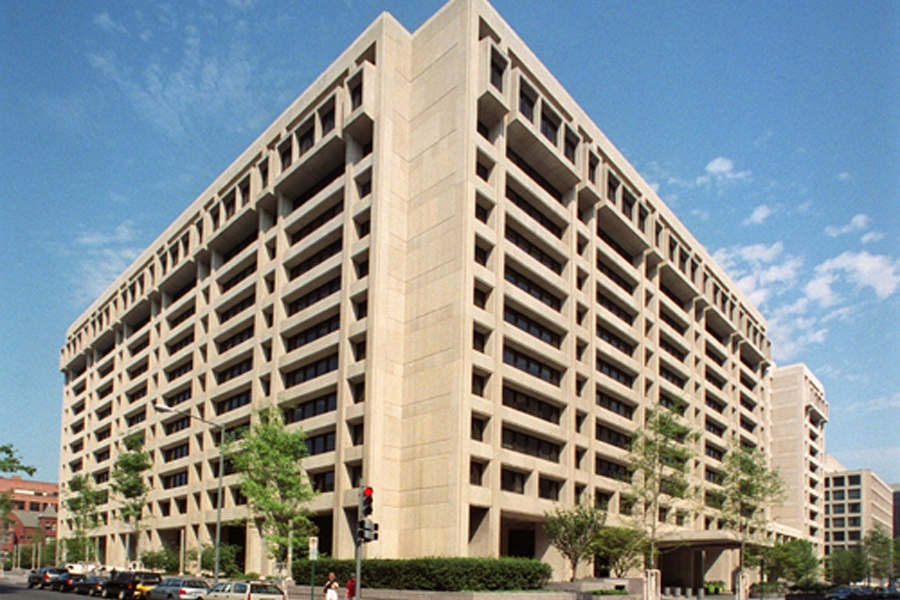
Over the past weekend, the US box office got a blast from the past. Still reeling from the COVID-19 induced lockdowns that led to the closure of theatres across the world, cinemas in the US opened with old hits from Hollywood’s wonder boy, Steven Spielberg.
The 1993 Jurassic Park and Jaws took the top spot over what was the most nostalgic weekend box office ever. The former narrowly beat out the latter, both earning around half a million dollars – a far cry from when Hollywood was churning out releases that earned billions of dollars just last summer.
Both were movies that went on to spawn terrible sequels and were highly successful at the box office when they were originally released, becoming the highest-grossing films of their time. They are also about blood-hungry monsters that go on a feeding frenzy.
But Jaws was a much more important landmark in cinema history. It launched the career of arguably the most popular film director in the world and introduced the era of the modern blockbuster. With Star Wars, which came out a couple of years later, Jaws defined what studio heads needed to look for in movies.
It was a fantastic movie, with great acting, Hitchcockian suspense-building and an unforgettable score. But it was evident that, as in Star Wars, it was not the story that drew in the crowds. It was the thrill, novel special effects and the channeling of youth subculture.
Most importantly, cinema was no longer an end to a means. Movies would continue to generate revenue at the box office, but they were also repackaged to sell toys and for advertising. It was the great commoditisation of films, and the art would never recover from it. Even the independent cinema movement that followed was but a blip in the general trajectory the studio system was taking the viewing experience.
As things stand now, this is partially the legacy of Spielberg, which is strange considering that he was a member of a generation of filmmakers that probably had the most respect for cinema. Jaws was one of the first major movies made by a new generation of filmmakers that learned more about life from movies than they did from life itself.
They were the first filmmakers to have grown up watching TV, which became a mass-market product in the 1950s. Thus, if previous filmmakers had interests and backgrounds in other fields, they instead grew up from an early age with the desire to be filmmakers. It was the first time that fandom was making movies, with at least a partial interest in TV shows that they carried over to cinema.
They were bound to radically change cinema, but it is interesting how they managed to transform it away from the form that they loved so much and into a version they themselves came to lament.
Culprit number one in this is Spielberg. He did more than anyone else to significantly bring down the average age of cinemagoers. He catered to an audience that was most at home suspending disbelief.
However, as Jaws, Raiders of the Lost Ark, E.T. the Extra-Terrestrial and even Jurassic Park show, he did it with taste. His movies had emotional richness, and he was a technical whiz. Not all of his movies are great, but one would be hard-pressed to find a movie of his that was not uplifting in its inventive camera angles and movements, editing and memorable photography.
Unfortunately, he inspired more movie executives than filmmakers with the revenue his movies were able to generate. Later blockbuster movies were purely moneymaking endeavours. They wanted teenagers to go to the cinema but did not aspire to relate to their sense of optimism, which was very important for Spielberg. They believed lots of explosions would suffice, as in the style of Michael Bay, who interned in one of Spielberg’s great movies, Raiders of the Lost Ark.
It is thus the case that Spielberg is not a negative in the end. Perhaps more than anyone else, he is the reason that most of us grow up watching movies. He made them playful and wondrous. It is not his fault we are all fawning over superhero movies today. It is our fault that we have accepted the degeneration of his vision of what cinema can become.
Spielberg is not a negative what cinema has became in the end, writes Christian Tesfaye, reviewing the legacy of Steven Spielberg on the heels of the re-release of Jaws and Jurassic Park. It is not his fault we are all fawning over superhero movies today, he writes, but ours for having accepted the degeneration of his vision of what cinema can become.
PUBLISHED ON
Jun 27,2020 [ VOL
21 , NO
1052]

Fortune News | Nov 09,2024

Viewpoints | Dec 10,2022

Viewpoints | Dec 11,2020

Radar | Dec 16,2023

Viewpoints | Apr 09,2022

News Analysis | Dec 08,2024

Fortune News | Dec 01,2024

Fortune News | Feb 26,2022

Radar | Aug 06,2022

Radar | Apr 16,2022

My Opinion | 131674 Views | Aug 14,2021

My Opinion | 128040 Views | Aug 21,2021

My Opinion | 126002 Views | Sep 10,2021

My Opinion | 123625 Views | Aug 07,2021

Jun 28 , 2025
Meseret Damtie, the assertive auditor general, has never been shy about naming names...

Jun 21 , 2025
A well-worn adage says, “Budget is not destiny, but it is direction.” Examining t...

Jun 14 , 2025
Yet again, the Horn of Africa is bracing for trouble. A region already frayed by wars...

Jun 7 , 2025
Few promises shine brighter in Addis Abeba than the pledge of a roof for every family...

Jun 29 , 2025
Addis Abeba's first rains have coincided with a sweeping rise in private school tuition, prompting the city's education...

Jun 29 , 2025 . By BEZAWIT HULUAGER
Central Bank Governor Mamo Mihretu claimed a bold reconfiguration of monetary policy...

Jun 29 , 2025 . By BEZAWIT HULUAGER
The federal government is betting on a sweeping overhaul of the driver licensing regi...

Jun 29 , 2025 . By NAHOM AYELE
Gadaa Bank has listed 1.2 million shares on the Ethiopian Securities Exchange (ESX),...